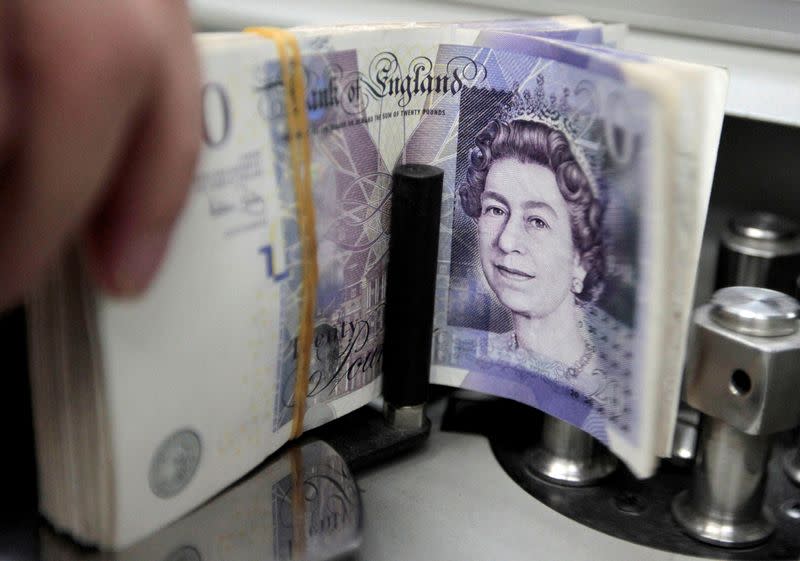Sterling set to break five-day rising streak versus euro

- Oops!Something went wrong.Please try again later.
By Stefano Rebaudo
(Reuters) - Sterling was on track to break a five-day rising streak against the euro, with investors reckoning that the Bank of England would be more hawkish than the European Central Bank in its monetary policy path.
It dropped slightly versus the greenback, which was mixed ahead of the Fed's meeting.
Analysts said the recent moves in rate forwards confirmed the prospect of a first BoE rate cut in August while signalling markets remained sceptical about additional monetary easing.
Markets priced in an 80% chance of a first move by the BoE in August while discounting around 40 bps by year-end, implying a 60% chance of a second cut in 2024.
Meanwhile, the ECB is seen starting in June and ending the year with almost three rate cuts.
The pound dropped 0.15% at 85.46 pence per euro. The single currency hit its strongest since early January at 86.06 after dovish comments from BoE Governor Andrew Bailey.
Bailey said in mid-April British inflation looked on track for a drop towards the 2% target. In the following days, BoE policymaker Megan Greene and Chief Economist Huw Pill sounded way more hawkish, arguing that inflation data was too high for the BoE to consider cutting rates.
"The 85-86 range has dominated for a long time and acts as a sort of magnet for the euro sterling cross," said Jane Foley, head of forex strategy at Rabobank, commenting on today's rise of the single currency.
The pound dropped 0.15% to $1.2542.
Markets look at the general elections later this year and the risks of less fiscal discipline, but they forecast a limited impact on financial markets.
"I think politicians have learned that markets will show zero-tolerance for anything but a prudent fiscal policy," Rabobank's Foley argued.
British Prime Minister Rishi Sunak's Conservative Party is set for a defeat, according to a projection published early this month, which showed the Labour Party winning over 400 seats.
(Reporting by Stefano Rebaudo; Editing by Bernadette Baum)

